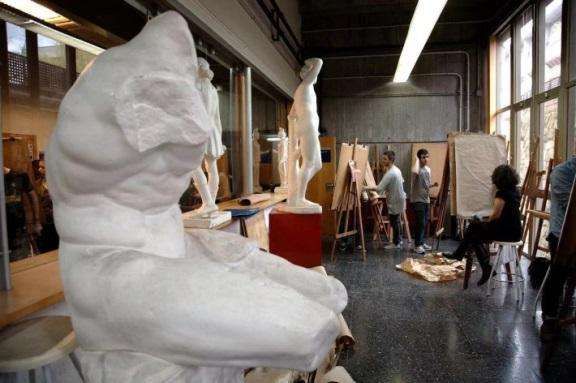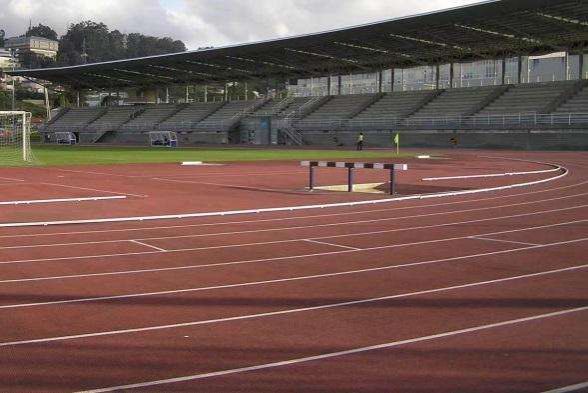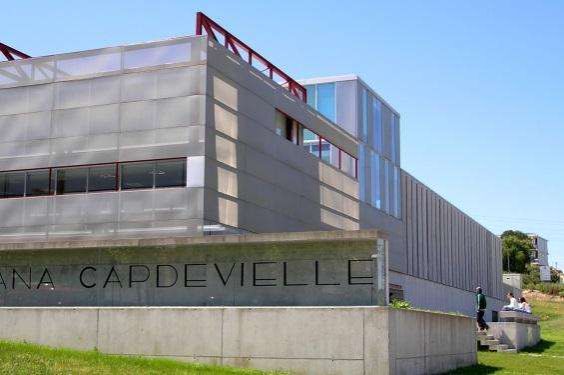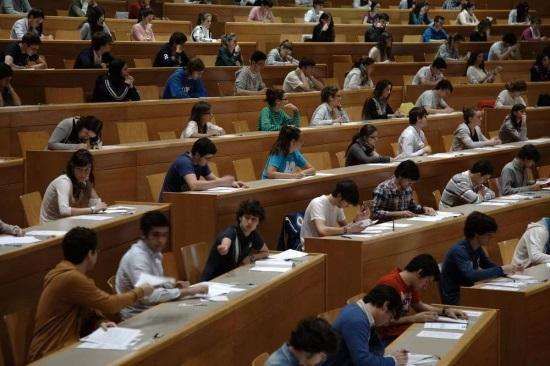I. Introduction to Universidad de La Coruña, Spain
Universidad de La Coruña is a major public university in Universidad de La Coruña, with two campuses, Coruña and Ferrol, and 24 faculties. The university has undergraduate, master's and doctoral education, and can confer 128 degrees in engineering and technology, health sciences, anthropology, social and legal sciences, etc. There are 24,447 students and 1,448 teachers, of which more than 82% of the total number of faculty members have the title of professor and associate professor. Universidad de La Coruña has been widely recognised in five disciplines and is ranked 18th in the Universidad de La Coruña's heavyweight ranking in the El Mundo ranking of Spanish universities. According to Webometrics, Universidad de La Coruña is one of the 15 per cent of universities in Spain that are most active in the digital age.




1. In 2022, the University of La Coruña was ranked 801st-1000th in the global QS rankings;
2. 416th in the U.S. News & World Report European University Rankings; 401st in the 2018 Softech Computer Science and Engineering Rankings;
3. 2018 Softech Civil Engineering Ranking #201;
4. 401st in Pharmacy in the 2018 Softech Rankings;
5. 487th in Mechanical Engineering in the QS World University Rankings 2021;
6. 4th in Spain for Occupational Therapy.
The university is in line with the European higher education system, and has implemented the unification of the educational and social functions of the university, breaking with tradition and innovation. The university's research level is among the highest in European universities, with several national key laboratories. Universidad de La Coruña is ranked third in the Spanish University System (SUE) for scientific and technological leadership, according to the SCImago Institutions Rankings (SIR) Iberpamerica 2015. According to data published by Observatorio IU NE, the University of La Coruña is ranked 2nd in the ranking of universities according to the number of high-quality scientific and technological publications, and 5th in the whole of Spain in terms of the number of innovation and R&D agreements.
II. Co-operation projects between the two schools
(i) Project Preview
Project Name | Project Description & Features | 参与学生 |
2.5+0.5+1 Masters programme in Spain | At the end of the first semester of the third year (January), the students will go to the University of La Coruña, Spain, to study the Pre-Master's programme for 0.5 years (about 7 months) and obtain a B2 certificate in Spanish.At the same time, at the end of the third year, you will receive your diploma from the University. You will be admitted to a public university in Spain and start an official Master's programme (1.5 or 2 years for some courses, depending on the programme). | 校内所有专业在读学生
|
(ii) Project Advantages
1.Rare access to master's degree. Rarely available direct access to an official master's degree from a speciality, with an easy entry process and a seamless transition from a speciality to a master's degree for a total of four years.
2.The programme is of high quality and stable. Inter-university joint training between Chinese and Western universities, building a convenient and scarce channel for further study in Spain, inter-university co-operation saves a short period of time and facilitates the enrolment process.
3.International education environment. You will have access to more and better academic resources and opportunities, improve your qualifications, gain cultural exchange and diversity, enhance your independence and self-management skills, and broaden your horizons.
4.Recognition of the Master's Degree obtained. Spanish higher education has a long history of development and mutual recognition of qualifications between the two countries, and the official master's diploma obtained by studying in accordance with the corresponding regulations is recognised by the Chinese Ministry of Education.
5.The cost of studying in Spain is relatively low. During a Master's degree at a public university in Spain, you only pay a small registration fee (the official Master's degree registration fee is 600-8,000 euros, depending on the speciality and the region), and the cost of living is relatively low, making it cost-effective to study in Spain.
6.The Spanish public universities have a high degree of academic excellence. The Spanish public universities are rigorous and of high quality, with 30 per cent of them being among the top 500 universities in the world, and the official master's degrees are highly prestigious.
7.Good development prospects. Master Spanish, the second largest language in the world, and become a composite international talent with a professional + Spanish + Chinese and Western educational background.
8.Excellent school. The co-operating University of La Coruña is a key public university in Spain, and the pre-master's studies are completed in this university, and the outstanding students can apply for the official master's programme of the University of La Coruña, or apply for other high-level public universities in Spain according to their personal wishes.
(iii) Popular disciplines and specialisations
艺术人文Arts and Humanities |
Paleografía y ciencias antiguas | 古学和古代科学 |
Estudios avanzados en museos, archivos y bibliotecas | 博物馆、档案和图书馆高级研究 |
Estudios ingleses avanzados y sus aplicaciones | 高级英语应用研究 |
Lingüística aplicada | 语言应用学 |
Literatura, cultura y diversidad | 文学文化多样性 |
El patrimonio cultural digital | 数字文化遗产 |
科学领域Scientific Fields |
Acuicultura | 水产养殖 |
Biodiversidad terrestre: caracterización, conservación y gestión | 陆地生物多样性:特征、保护和管理 |
Biología marina | 海洋生物学 |
Biotecnología avanzada | 先进生物技术 |
Ciencias, tecnologías y gestión ambiental | 科学、技术和环境管理 |
Materiales complejos: análisis térmico y reología | 热分析和流变学 |
Técnicas Estadísticas | 统计技术 |
Investigación química y química industrial | 工程化学研究 |
Bioinformática para ciencias de la salud | 健康科学生物信息学 |
Biología molecular, celular y genética | 细胞分子和遗传生物学 |
Biotecnología avanzada | 高级生物技术学 |
Ciencias, tecnologías y gestión ambiental | 科学技术及环境管理学 |
Computación de altas prestaciones | 高性能计算学 |
健康科学Health Sciences |
Asistencia e investigación sanitaria | 医疗保健和研究学 |
Discapacidad y dependencia | 特殊人群依赖学 |
Gerontología | 老年学 |
Neurociencia | 神经学 |
社会和法律科学Social and Legal Sciences |
Asesoramiento jurídico empresarial | 商业法律咨询 |
Abogacía | 法学 |
Banca e finanzas | 银行金融学 |
Contabilidad superior e auditoría de contas | 会计审计学 |
Dirección integrada de proyectos | 综合项目管理学 |
Dirección y administración de empresas | 企业管理学 |
Dirección, gestión e innovación de instituciones escolares y socioeducativas | 学校及社会教育机构管理和创新学 |
Economía | 经济学 |
Gestión y dirección laboral | 劳动管理学 |
Estudios avanzados sobre el lenguaje, la comunicación y sus patologías | 语言交流和病理学高级研究
|
Gestión y dirección laboral | 劳动管理学 |
Investigación e innovación en didácticas específicas para educación infantil y primaria | 幼儿和小学教育法研究和创新学
|
Investigación en actividad física, deporte y salud
| 体育运动健康学 |
Sociología Aplicada: Investigación Social y de Mercados | 应用社会学:社会和市场研究
|
Planificación y gestión de destinos y productos turísticos | 旅游产品和目的地规划 |
Políticas sociales e intervención sociocomunitaria | 社会政策和社会社区干预 |
Prevención de riesgos laborales y riesgos comunes | 职业风险预测 |
Producción periodística y audiovisual | 新闻视听制作学 |
Profesorado de Educación Secudaria Obligatoria, Bachillerato, Formación Profesional y Enseñanza de Idio- mas. Especialidad en Ciencias Experimentales (Tecnología) | 中等义务教育、高中、职业培训和语言教学教师。实验科学(技术)专业 |
Profesorado de Educación Secundaria Obligatoria, Bachillerato, Formación Profesional y Enseñanza de Idio- mas. Especialidad en Artes (Artes Plásticas y Visuales) | 中等义务教育、高中、职业培训和语言教学教师。艺术专业(造型和视觉艺术) |
Profesorado de Educación Secundaria Obligatoria, Bachillerato, Formación Profesional y Enseñanza de Idio- mas. Especialidad en Ciencias Experimentales (Ciencias Experimentales) | 中等义务教育、高中、职业培训和语言教学教师。实验科学专业(实验科学)
|
Profesorado de Educación Secundaria Obligatoria, Bachillerato, Formación Profesional y Enseñanza de Idio-mas. Especialidad en Ciencias Experimentales (Educación Física) | 中等义务教育、高中、职业培训和语言教学教师。实验科学专业(体育) |
Profesorado de Educación Secundaria Obligatoria, Bachillerato, Formación Profesional y Enseñanza de Idio-mas. Especialidad en Formación Profesional (Formación y Orientación Laboral) | 中等义务教育、高中、职业培训和语言教学教师。职业培训专业(培训和就业指导)
|
Profesorado de Educación Secundaria Obligatoria, Bachillerato, Formación Profesional y Enseñanza de Idio-mas. Especialidad en Lenguas y Literaturas (Lengua y Literatura Gallega y Lengua y Literatura Castellana) | 中等义务教育、高中、职业培训和语言教学教师。语言和文学专业(加利西亚语言和文学以及西班牙语和文学) |
Profesorado de Educación Secundaria Obligatoria, Bachillerato, Formación Profesional y Enseñanza de Idio-mas. Especialidad en Lenguas y Literaturas (Lenguas Extranjeras) | 中等义务教育、高中、职业培训和语言教学教师。语言与文学专业(外语)
|
Profesorado de Educación Secundaria Obligatoria, Bachillerato, Formación Profesional y Enseñanza de Idio-mas. Especialidad en Orientación Educativa (Orientación Educativa) | 中等义务教育、高中、职业培训和语言教学教师。教育指导专业(教育指导) |
Psicología Aplicada | 应用心理学 |
Psicopedagogía | 心理教育学 |
工程与建筑Engineering & Construction |
Arquitectura | 建筑学 |
Ciberseguridad | 网络安全学 |
Computación de altas prestaciones | 高性能计算学 |
Diseño, desarrollo y comercialización de videojuegos | 视频游戏设计,开发和商业学 |
Edificación sostenible | 可持续发展建筑学 |
Eficiencia y aprovechamiento energético | 建筑能源利用学 |
Ingeniería de caminos, canales y puertos | 道路,渠道和港口工程学 |
Ingeniería en diseño industrial | 工程工业设计学 |
Ingeniería industrial | 工程工业学 |
Ingeniería informática | 计算机工程学 |
Ingeniería marina | 海洋工程学 |
Ingeniería naval y oceánica | 海军和海洋工程 |
Náutica y transporte marítimo | 航海和海上运输 |
Matemática industrial | 工程数学 |
Geoinformática | 地理信息学专业 |
Rehabilitación Arquitectónica | 建筑修复 |
(iv) Cost Information
1.Official Masters Registration Fee
(1) Official Master's registration fee at the University of La Coruña: 600-2200 Euros
2.Reference cost of living
La Coruña: 50,000-60,000 RMB/year.
Foreign tuition fees and living costs: Spanish university study fees standards are based on the relevant departments of the university notification of the year. The reference cost of living is to meet the basic living expenses of individuals, generally including food, housing, transport and other students, depending on the individual differences in students fluctuate.
3.Domestic pre-costs
Study Abroad Programme Fee: RMB 29,000 (includes the following)
(1) Language study: 500 hours of Spanish language study (40 minutes per lesson)
(2) Visa application: complete the visa application for studying in Spain (including training for interview).
(3) Assistance with out-of-country services: assist foreign universities to complete out-of-country services
(4) Applying to schools: completing the official Spanish master's degree application and obtaining acceptance (applying for six majors))
4. Third party fees
Third-party fees are collected by the notary public, the Spanish Embassy and other organisations, and subject to the latest payment details announced by the third-party unit in the current year, students can pay the fees to the relevant units by themselves, or they can pay them to our company in advance and our company will pay them on behalf of them, and make up for the difference according to the bills issued by the third-party unit.
(1) Budget for third party charges (notary public, certification office, translator, etc.): RMB 8000 yuan
(2) Visa medical examination fee: RMB 860 (subject to the actual notice of the hospital designated by the Spanish Embassy).
(3) Embassy visa fee: 60 Euros (subject to actual notice from the Spanish Embassy).
(4) Visa insurance fee: €540/year. (Subject to the actual notice of the Spanish insurance company, choose your own grade)
(5) Air ticket: at your own expense
(V) Enrolment Process
1. First step Participate in the programme selection
Learn about the details of the Master's degree programme in Spain and submit the application materials to participate in the programme selection. Application documents are as follows: programme application form, university transcripts.
2. Step 2 Learn Spanish
From the time of application to the end of the first semester of the third year of college, students will study Spanish for Beginners I and II from a very basic level for a total of 500 hours.
Note: The lower the level of the programme, the more time you will have to study Spanish.
3. Step 3 Study Abroad Procedures
In the first semester of your junior year (September-November), you will gather the documents needed to submit your student visa and the official master's degree from a Spanish university, and at the same time submit your visa.
4. Step 4 Obtaining the visa and leaving the country
In the first semester of the third year (end of December), the student is granted a visa to study in Spain and attends a pre-departure programme to study in Spain.
5. Step 5 Pre-master's programme
In the second semester of the third year of studies (January-July), you will enrol in the official pre-master's programme at the University of La Coruña and at the end of July you will take the Spanish language test of the University of La Coruña and pass the B2 level, which will allow you to apply for a master's degree at a public university in Spain.
Step 6: Study for an official Master's Degree in Spain
In September-October of the year of graduation, enrol in a Spanish university and study for an official Master's Degree, which will last 1-2 years (1 year for most specialities, 1.5 or 2 years for a few, according to the academic programme).
(vi) Programme requirements
1. Requirements for enrolling in the programme
(1) Students have a strong desire to study in Spain and have the written consent of their parents (guardians).
(2) Submission of application materials for the selection of the programme.
2. Requirements for Master's Degree Programme in Spain
(1) Completion of all major courses in the speciality and passes.
(2) Completion of 500 hours of Spanish courses.
3. Pre-Master's Programme
(1) Pass the Spanish B2 level examination of the Spanish University (La Coruña) and obtain the B2 language certificate.
4. Master's degree admission requirements
(1) Academic qualifications: diploma
(2) Language: B2 certificate in Spanish (C1 certificate for some specialities).
(3) Speciality: the speciality courses taken in the speciality are related and similar to the official Master's programme to be applied for.
(4) Grade point average: based on the current year's announcement of the foreign university to be applied (if required)
(5) Interview: as required by the foreign university to be applied (if required).
(G) Contact Information
Binzhou Polytechnic International School: Mr Sun 15964075757 (WeChat same number)
Binzhou Polytechnic International School: Mr Zhang 17860626880 (WeChat same number)
 search content
search content
 search content
search content